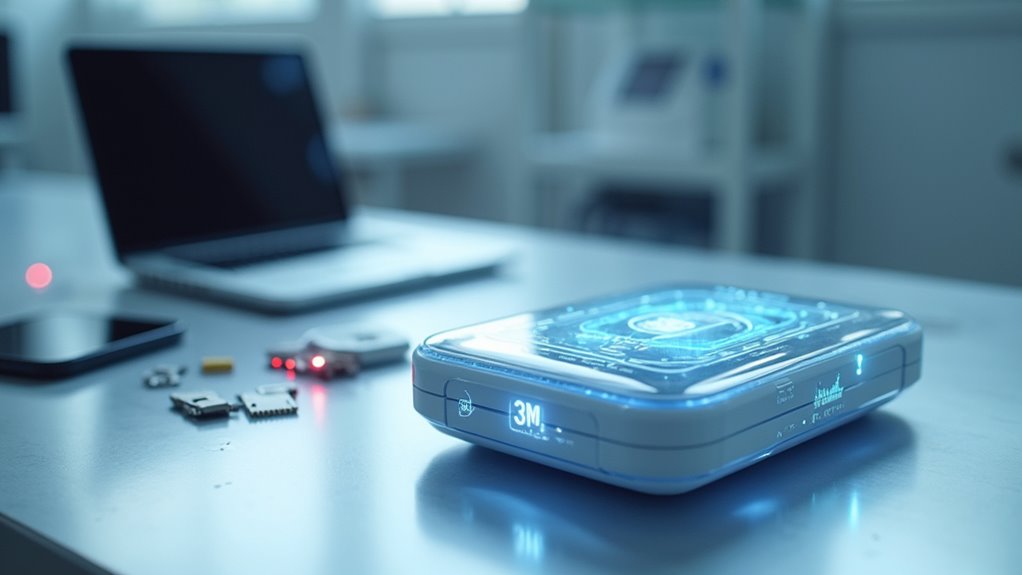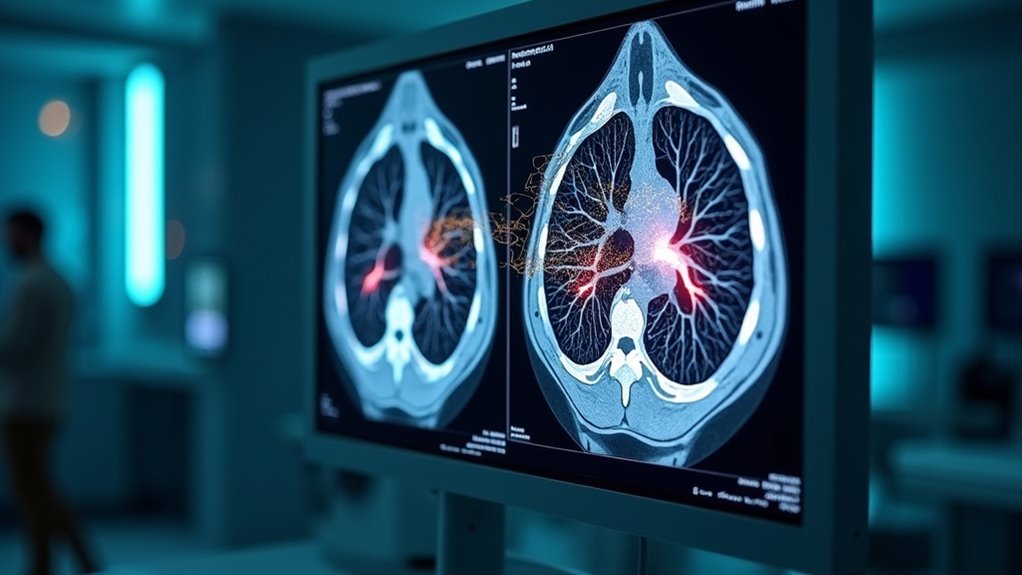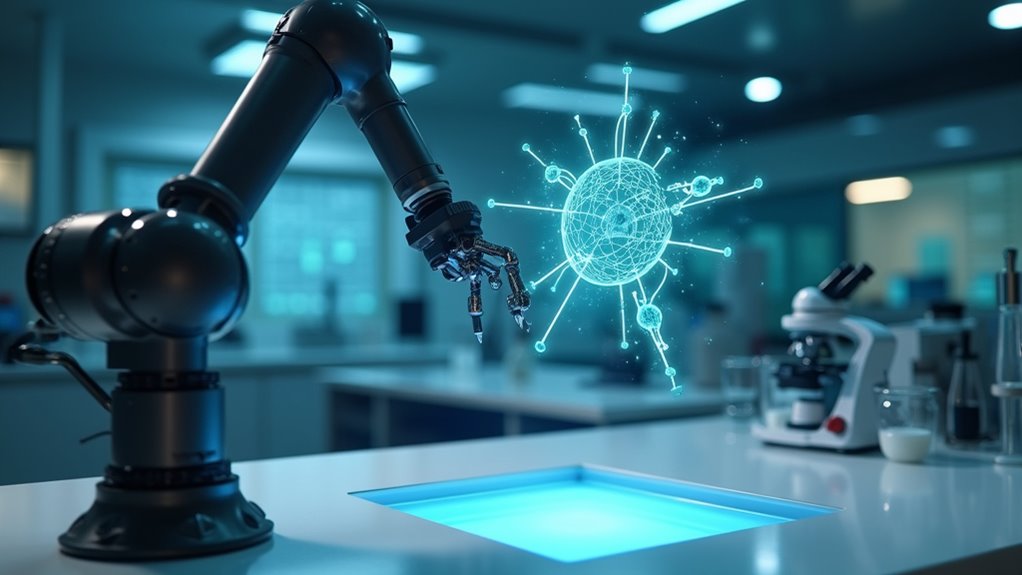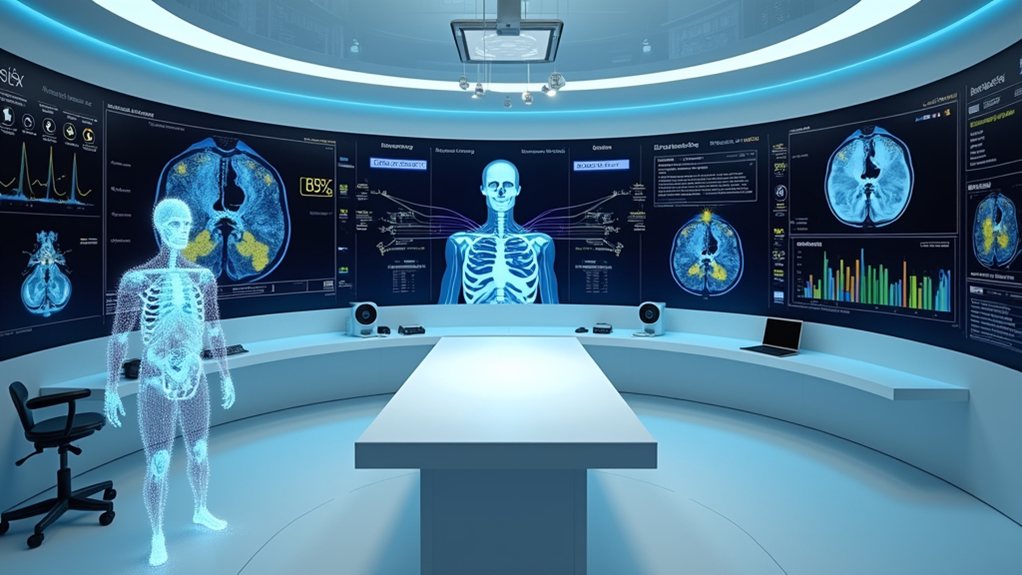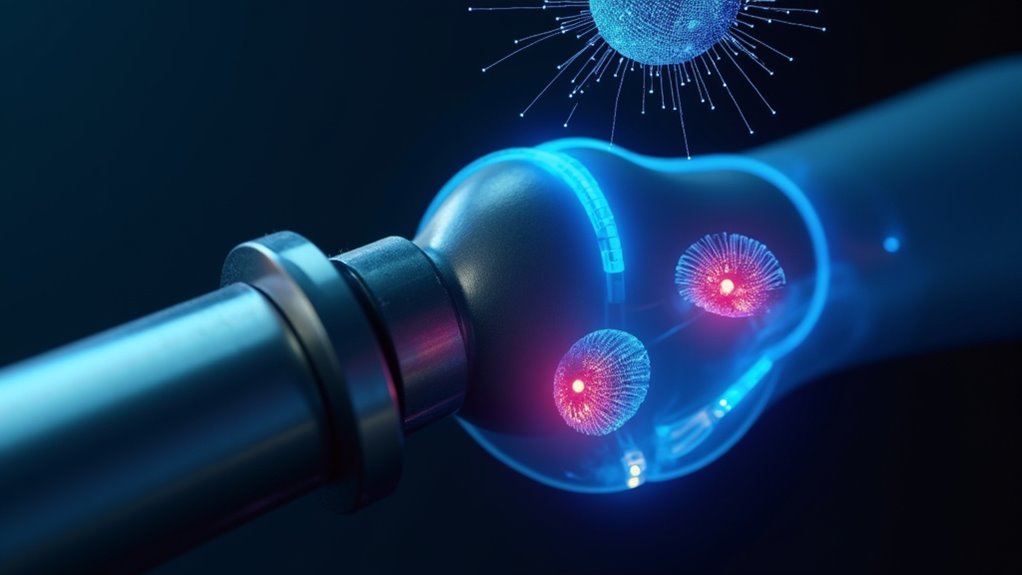OpenAI’s $6.5 billion acquisition of Jony Ive’s startup io has left Apple scrambling. The tech world’s newest power couple—Altman and Ive—plans to launch AI-driven healthcare devices by 2026 that monitor health proactively, not just passively. Apple, already lagging in AI development, now watches its former design guru potentially revolutionize healthcare tech with sleeker interfaces and smarter capabilities. The partnership’s 55-person team aims to create companions that understand your health before you do. The implications might just redefine your relationship with technology.
While tech giants have been slugging it out in the AI arena for months, OpenAI just made a power move that could transform healthcare as it stands. The company’s eye-popping $6.5 billion acquisition of Jony Ive‘s startup io represents not just OpenAI’s largest purchase ever, but potentially a complete reshuffling of the healthcare AI deck.
Let’s be real—this isn’t just about fancy new gadgets. By bringing on board 55 scientists, researchers, and product developers (many of whom helped create those Apple products you’re probably holding right now), OpenAI is positioning itself to create healthcare companions that actually understand you.
Think less “Siri, what’s the weather?” and more “your AI noticed your heart rate has been elevated for three days and has some suggestions.”
The age of passive AI is ending. Tomorrow’s health tech won’t just answer questions—it’ll spot problems before you do.
Ive, who will lead creative and design work while maintaining control of LoveFrom, has described this moment as the culmination of his 30-year career. He’s called Sam Altman a “rare visionary,” which, coming from the man who helped design the iPhone, is quite the compliment.
The first devices from this power couple aren’t expected until 2026, but they’re reportedly designed to take users “beyond screens.” The collaboration aims to develop AI-powered consumer devices that move beyond traditional screens for more intuitive AI access. OpenAI’s HealthBench initiative will likely provide the ethical framework for these revolutionary healthcare applications. These innovations could leverage AI imaging capabilities that detect abnormalities before symptoms appear, similar to current medical imaging advancements. Whatever that means, it has “completely captured” Ive’s imagination—and Apple is surely sweating bullets.
After all, they’re already struggling to compete in AI, and now their former design guru is working with their biggest potential rival.
For patients and healthcare providers, this could mean AI-driven devices that monitor health indicators, analyze habits, and provide personalized support without the clunky interfaces we’ve grown accustomed to.
Imagine a sleek, unobtrusive device that’s fully aware of your health situation—no more fumbling through apps or forgetting medications.
As Altman suggested Steve Jobs would be “damn proud” of Ive’s latest move, one thing is clear: the future of healthcare AI just got a whole lot more interesting—and Apple might need more than an apple a day to keep this doctor away.
